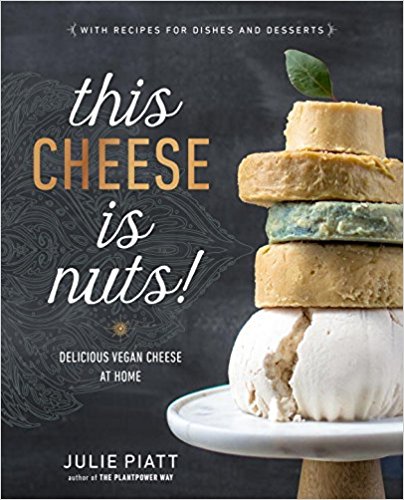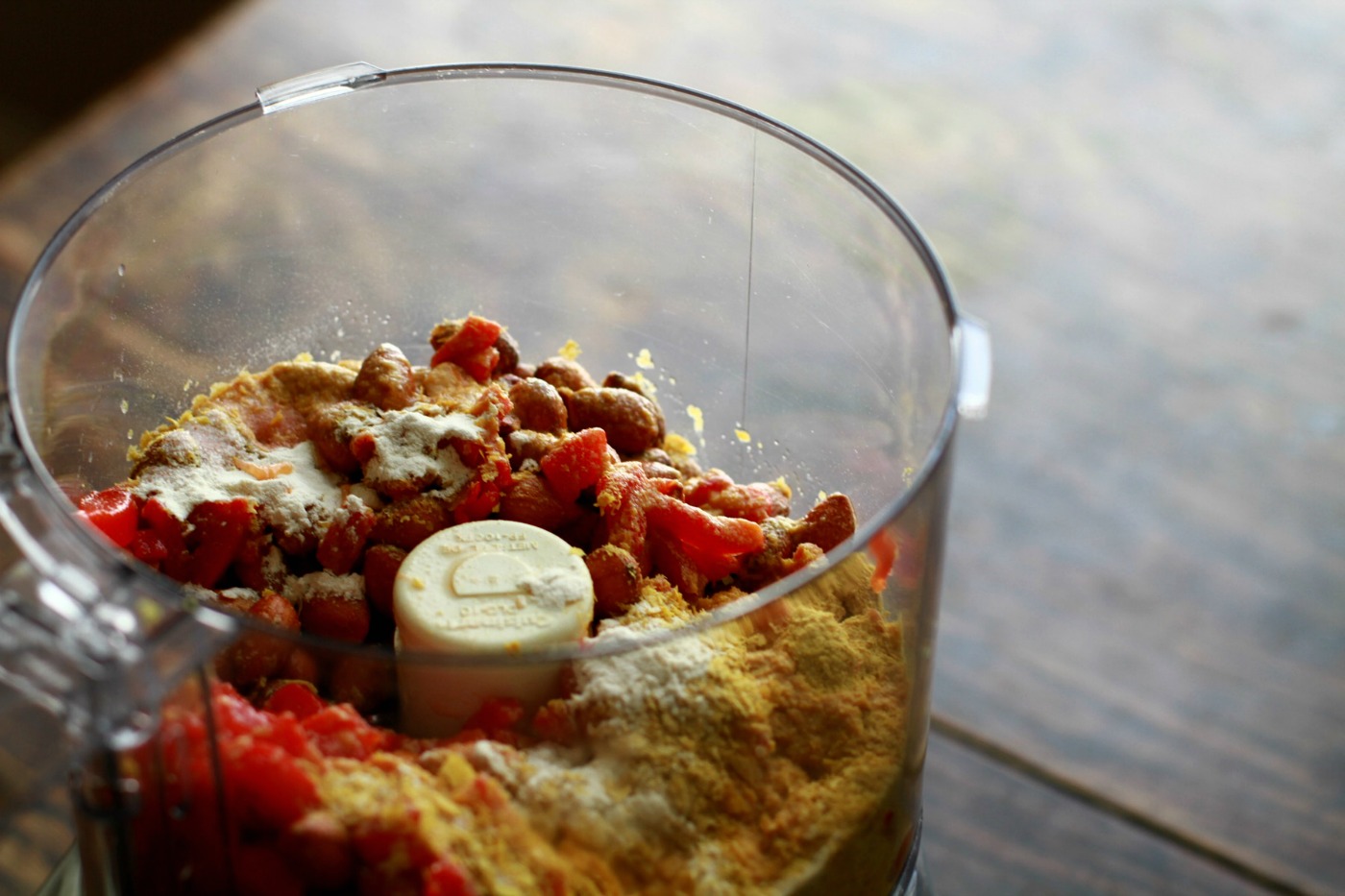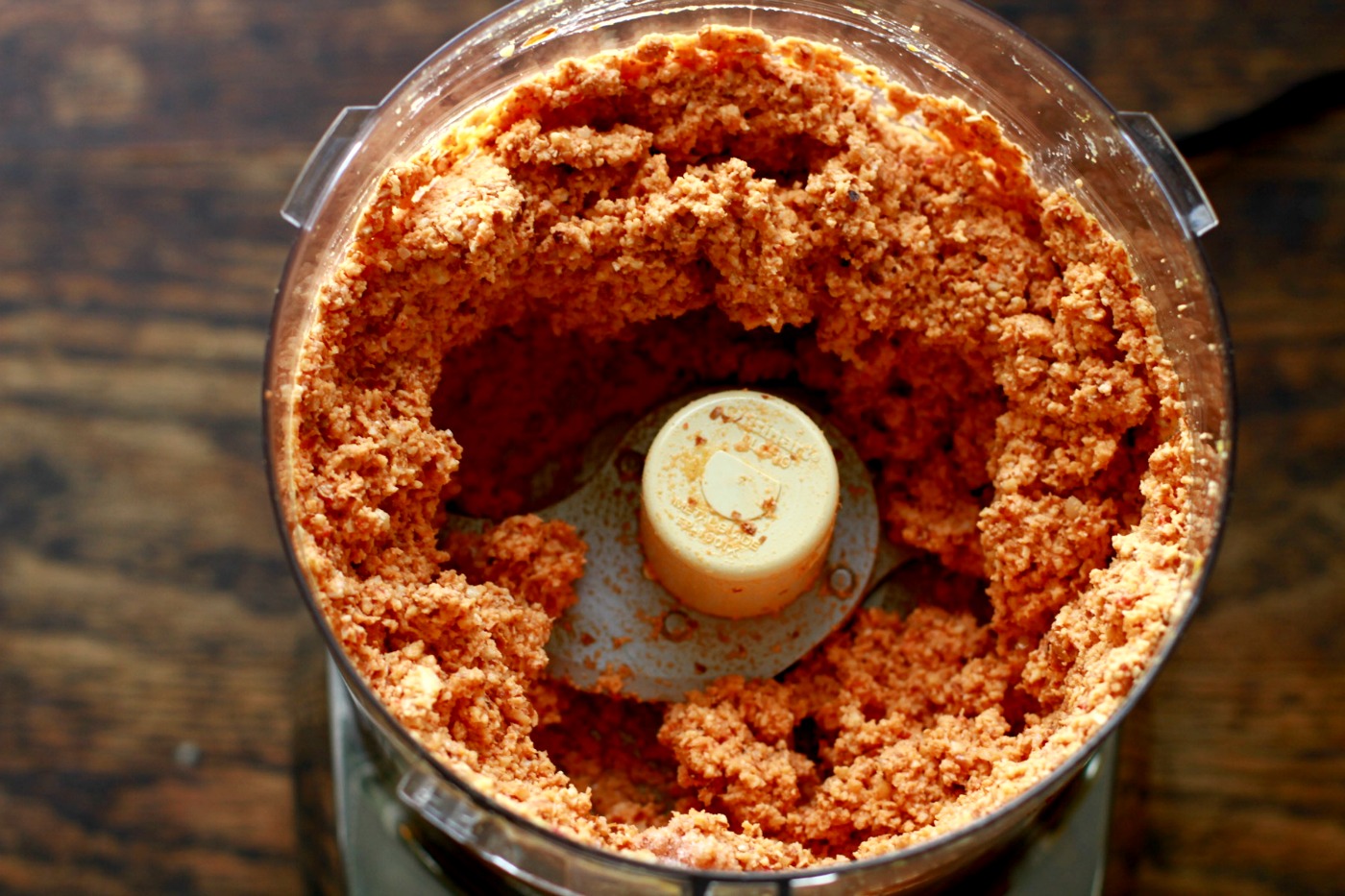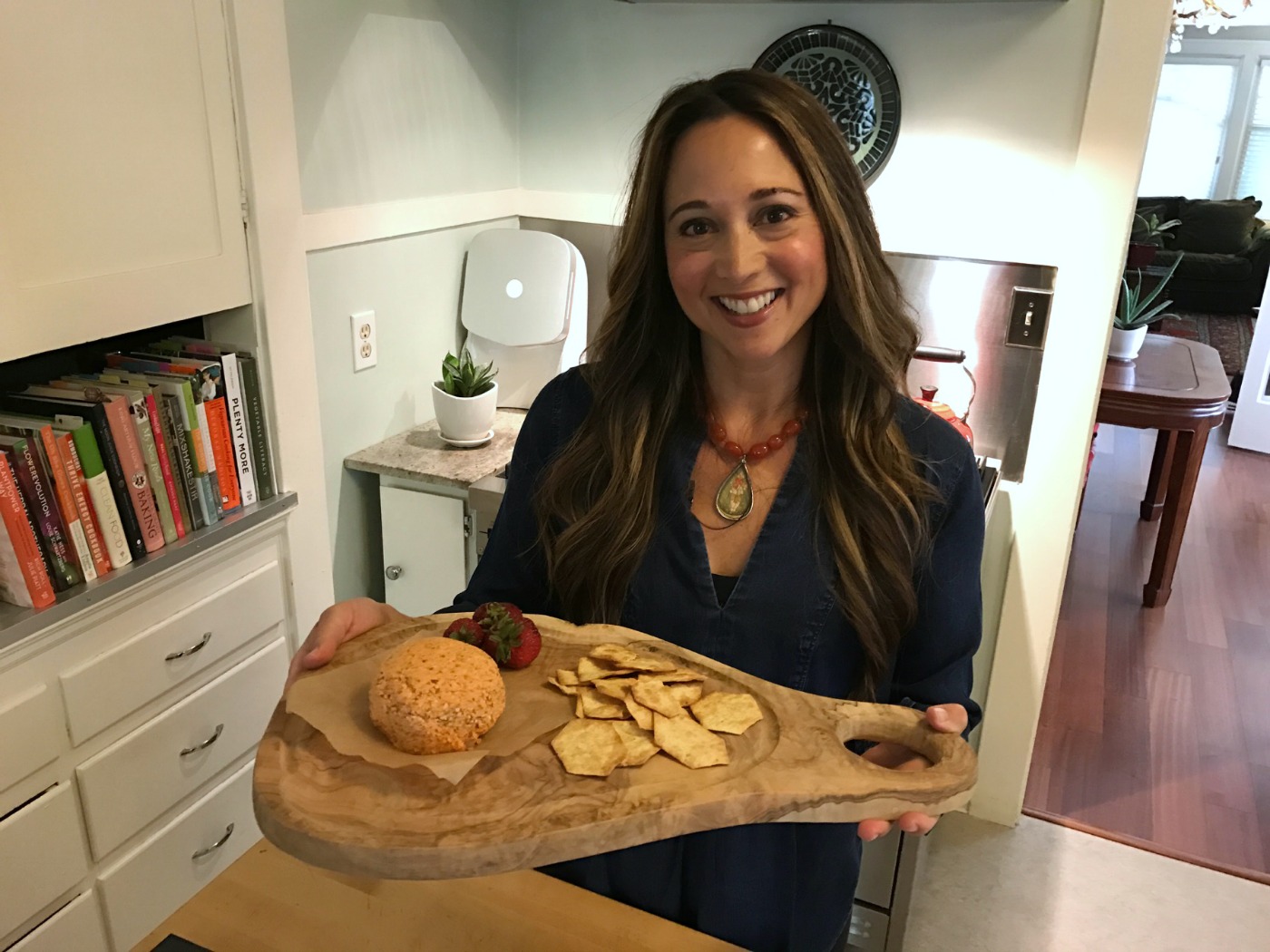For my latest segment on More Good Day Oregon, I made a delicious, dairy free Smoked Almond Cheddar from This Cheese is Nuts by Julie Piatt. Check out the video below as I make this tasty dish step-by-step.
Why go dairy free?
Dairy, for many people, can be a mixed bag.
For example, let's talk about cheese.
Maybe you crave gooey mozzarella on top of a pizza, or a creamy alfredo sauce. Or something as simple as grilled cheese. Let's face it: cheese is the comfort food cover girl of the standard American diet.
And I totally get the appeal. As a recovering cheeseaholic, I know full well how awesome cheese tastes.
But as much as I love cheese, it doesn't love me back.
And chances are it doesn't love you back either.
Dairy, in general — and cheese, in particular — can have a negative effect on many people. In fact, many of my clients discover that they feel much better when they remove it from their diet.
So what are the kinds of ways that dairy can have a negative effect on your body?
I'm so glad you asked! Let's get into the details…
Dairy's dark side
Whether you’re talking about milk, cheese, kefir — even the highly popular Greek yogurt — dairy can affect everything from our skin to the way we our bodies assimilate nutrients.
And by the way, this applies to both factory-farmed as well as organic sources. Sure, pastured dairy can be less toxic in terms of agricultural antibiotic use and toxins, but it's still essentially a hormone-rich fluid that contains compounds that humans can't break down. After all, dairy milk is intended to grow and sustain baby cows, not humans.
So why is dairy so problematic for people?
For starters, many people are sensitive to lactose (milk sugar) or casein (milk protein).
What does this mean? Most people simply can’t digest or process lactose or casein properly. In fact, a naturopath once told me that cow’s milk is one of the most common food sensitivities she sees among her patients.
Dairy isn't just hard to digest, though. There are much bigger issues at stake. Dairy has come under the microscope over the years, and there’s now a growing body of research linking it to:
- Acne
- Eczema
- Weight gain or the inability to lose weight
- Insulin resistance, which can lead to pre-diabetes and Type 2 diabetes
- Increased risk for prostate cancer
- Increased risk for lung, breast and ovarian cancer
- Inability to absorb nutrients such as antioxidants
- Hormonal imbalances
- Contributes to high blood cholesterol and cardiovascular disease
- And, ironically, accelerated calcium excretion from the bones
So if you're experiencing any of these symptoms in your body — or want to reduce your risk for certain kinds of cancer (who doesn't?!), then consider going dairy free whenever possible.
“I want to go plant-based but can't give up cheese!”
When working with clients, I hear this a lot.
People work with me because they want to eat healthy. They know they should be eating more vegetables, but they just can't seem to make it happen. They want to know more about green smoothies or juicing, and but they need some support to get started.
Often, they've recently been diagnosed with high cholesterol or high blood pressure or pre-diabetes, and they're motivated. Many of them are open to giving up meat and other animal proteins — or drastically reducing their consumption of these foods.
But cheese? Many of my clients have a really hard time even thinking about giving it up.
After all, cheese is a major part of the standard American diet. In fact, in 2015, Americans consumed about 34 pounds per capita. That's a lot of cheesy crust pizza and yogurt, people!
Plus, cheese is legit addictive. That's because cheese, when digested, produces mild opiates called casomorphins. These opiates actually light up the same part of your brain as cocaine or heroin would.
No wonder people have such a hard time giving it up, both biologically and psychologically.
But what about calcium?
Many people consume cheese and other dairy products because they want to make sure they're getting enough calcium to support healthy bones.
But guess what?
The consumption of dairy hasn't been proven to have any protective effects on osteoporosis whatsoever. It's simply not in the scientific literature. So in short, the drink-milk-for-healthy-bones message is simply a marketing slogan — not scientific proof.
To take this a step further, modern research is now finding that reducing your use of animal protein — including dairy products — actually has a beneficial effect on bone health.
Don't get me wrong — calcium is an important nutrient. But getting it from dairy comes with too many unhealthy side effects, including increasing your risk for serious diseases. Instead, try getting your calcium from plant-based sources such as:
- Brussels Sprouts
- Broccoli
- Broccoli Rabe
- Kale
- Carrots
- Cauliflower
- Collard Greens
- Tofu
- Arugula
- Mustard Greens
- Spinach
- Okra
- Sun Dried Tomatoes
- Garlic
- Brazil nuts
- Walnuts
- Sesame Seeds
This Cheese is Nuts
One fun way you can get your cheese fix — without the dairy drama — is to make a nut-based cheese using something like almonds or cashews.
Plant based cheeses and cheese sauces may not be exact replicas of your favorite cheddar or mozzarella in terms of melty gooeyness, but they can still deliver richness to a dish, as well as fantastic flavor.
One of my favorite ways to enjoy nut-based cheeses is by exploring the recipes in Julia Piatt's new cookbook, This Cheese is Nuts.

Many of the recipes are super simple, yet bold in flavor. Some of the recipes are more advanced — and can require a dehydrator or aging the cheese.
But the recipe I chose to make for a recent healthy eating segment on More Good Day Oregon is one of the simplest: a delicious Smoked Almond Cheddar.

This dish reminds me of the smoky cheddar cheese ball I used to love as a kid — from Hickory Farms at the mall. Except this version is made from very simple ingredients — soaked almonds and a jar of pimiento peppers and a wee bit of liquid smoke. It's a dish that's both easy to prepare… and digest. And, it's snap to make in the food processor.

This recipe is perfect for:
- Appetizer for your next dinner party
- A potluck dish for your friends, dairy free and otherwise
- A mid-afternoon snack, served with sliced apple or pear
- Crumbled over a salad of chopped romaine, apples, and walnuts
- Tucked into a wrap with fresh greens and sliced cucumber
- Anytime you're craving something super savory (i.e., instead of reaching for Doritos)
Ready to get started?
Great! Just click on the green link below!
If you make the recipe, be sure to tag me over on Instagram. I'd love to see your kitchen creations!


